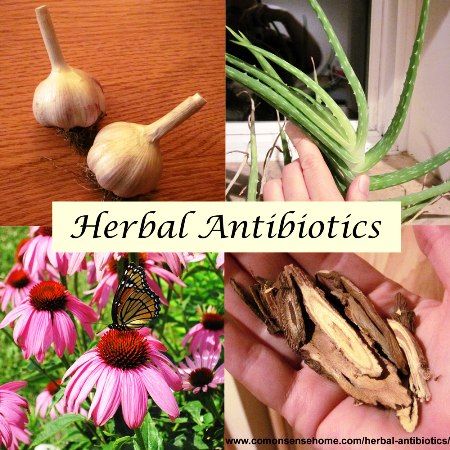
Have you become dependent on antibiotics? If you have, you'd also probably notice how the more frequently you use antibiotics, the more you will need to consume larger doses each time to experience the same effects as before. Indeed, developing an increased resistance to synthetic antibiotics today is not uncommon. Moreover, pharmaceutical antibiotics kill both healthy and unhealthy bacteria which compromises your immune system. [1] And as stronger antibiotics are created to counter attack this resistance, stronger forms of viruses and bacteria have also evolved. [2]
Worse, did you know that even without an overdependence on antibiotics,
resistance can still occur because some animal feeds are nevertheless mixed
with minimal dosages of antibiotics? [3]
Fortunately, you have herbs that possess antibiotic and blood cleansing
properties at your disposal. Herbs that can easily be found in your local
grocery store, garden or even kitchen. These herbs works differently than your
common antibiotics without increasing your resistance against them. In fact,
most simple ailments like sinus issues, sore throats, shallow wounds and mild
urinary tract infections often only need the antibiotic properties of herbs
than drugs [3] such as these 7 gifts of nature:
7 Herbal Antibiotics
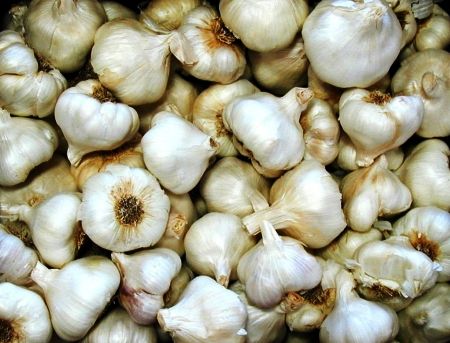
Garlic
It is best when eaten raw, garlic has antibacterial properties to strengthen the immune system. What's even better about garlic is your body will not naturally develop resistance against it [4] nor does it fight the healthy bacteria your body needs like those which line your intestines. [5] Because the potent effects of garlic remain when uncooked, it's better to take it in smaller doses to avoid upsetting the stomach. [6]
Tea tree
Mixed with olive or almond oil and externally applied, the Australian native tea tree is an herbal antibiotic to fight bacteria, fungal infections and viruses on contact. In some cases, it is likened to a milder form of rubbing alcohol. [4] Its practical uses include combatting fungal nail infections and athlete's foot. [5]
Mixed with olive or almond oil and externally applied, the Australian native tea tree is an herbal antibiotic to fight bacteria, fungal infections and viruses on contact. In some cases, it is likened to a milder form of rubbing alcohol. [4] Its practical uses include combatting fungal nail infections and athlete's foot. [5]
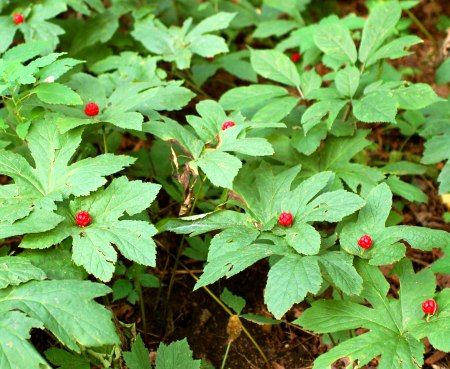
Goldenseal
It is an anti-inflammatory herb, goldenseal alleviates liver, gastrointestinal issues [2] and is known to effectively fight 19 types of bacteria when used long-term. [4]
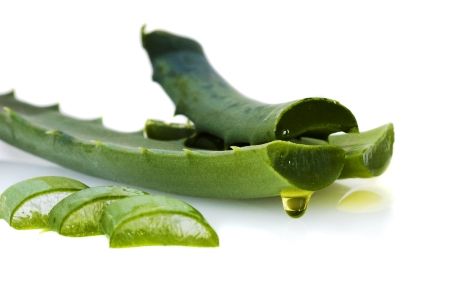
Aloe vera
When its sap is externally applied to wounds or burns, aloe vera hastens the healing, adds comfort and prevents infection.[6] Aside from wounds and burns, this native plant can kill bacteria causing rashes, inflammation and constipation. [2]
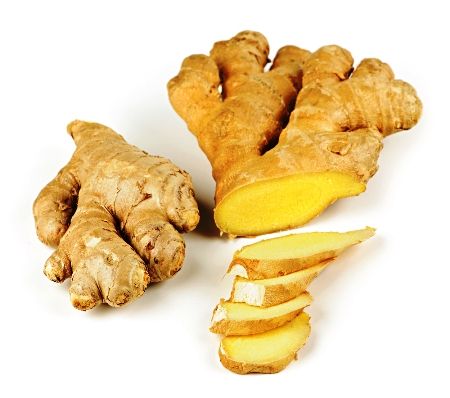
Ginger
Like garlic, ginger is best consumed raw to maximize on its antibacterial effects. Ginger also has known anti-nausea and anti-fungal properties and can aid sufferers of diarrhea.[5]
Echinacea
If you experience early signs of colds, sore throat or flu, try this herb before resorting to more drastic antibiotics. Echinacea can also help those suffering from hay fever, ear infections, urinary tract infections, sunburn, enlarged prostate and lymph glands recover faster. [2]
If you experience early signs of colds, sore throat or flu, try this herb before resorting to more drastic antibiotics. Echinacea can also help those suffering from hay fever, ear infections, urinary tract infections, sunburn, enlarged prostate and lymph glands recover faster. [2]
Licorice
Another powerful anti-inflammatory, antibacterial, antimicrobial and antifungal herb that can be used to improve indigestion, small intestinal ulcers, viral infections and hepatitis. [2]Be careful however of its side effects especially when taken with other medications.
Another powerful anti-inflammatory, antibacterial, antimicrobial and antifungal herb that can be used to improve indigestion, small intestinal ulcers, viral infections and hepatitis. [2]Be careful however of its side effects especially when taken with other medications.
This doesn't mean though that all synthetic antibiotics should be
forbidden. But where mild infections, cuts, injuries can be remedied by herbs,
these will help you reduce dependency on pharmaceutical drugs so that when you
really do need these medications for more serious disorders, they can more
effectively work for you even in smaller dosages. [4]
References
[1]
http://www.care2.com/greenliving/common-foods-herbs-with-antibiotic-properties.html
[2] http://www.seattleorganicrestaurants.com/vegan-whole-foods/top-20-herbal-antibiotics/
[3] http://www.doctoroz.com/videos/herbal-antibiotic-alternatives
[4] http://www.livestrong.com/article/94277-natural-antibiotic-herbs/
[5] http://www.herbco.com/t-herbs-infection.aspx
[6] http://www.commonsensehome.com/herbal-antibiotics/
[2] http://www.seattleorganicrestaurants.com/vegan-whole-foods/top-20-herbal-antibiotics/
[3] http://www.doctoroz.com/videos/herbal-antibiotic-alternatives
[4] http://www.livestrong.com/article/94277-natural-antibiotic-herbs/
[5] http://www.herbco.com/t-herbs-infection.aspx
[6] http://www.commonsensehome.com/herbal-antibiotics/
Article researched and created by Cathy Ongking, © herbs-info.com 2013



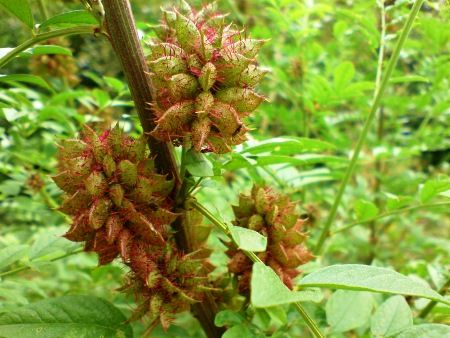












































No comments:
Post a Comment